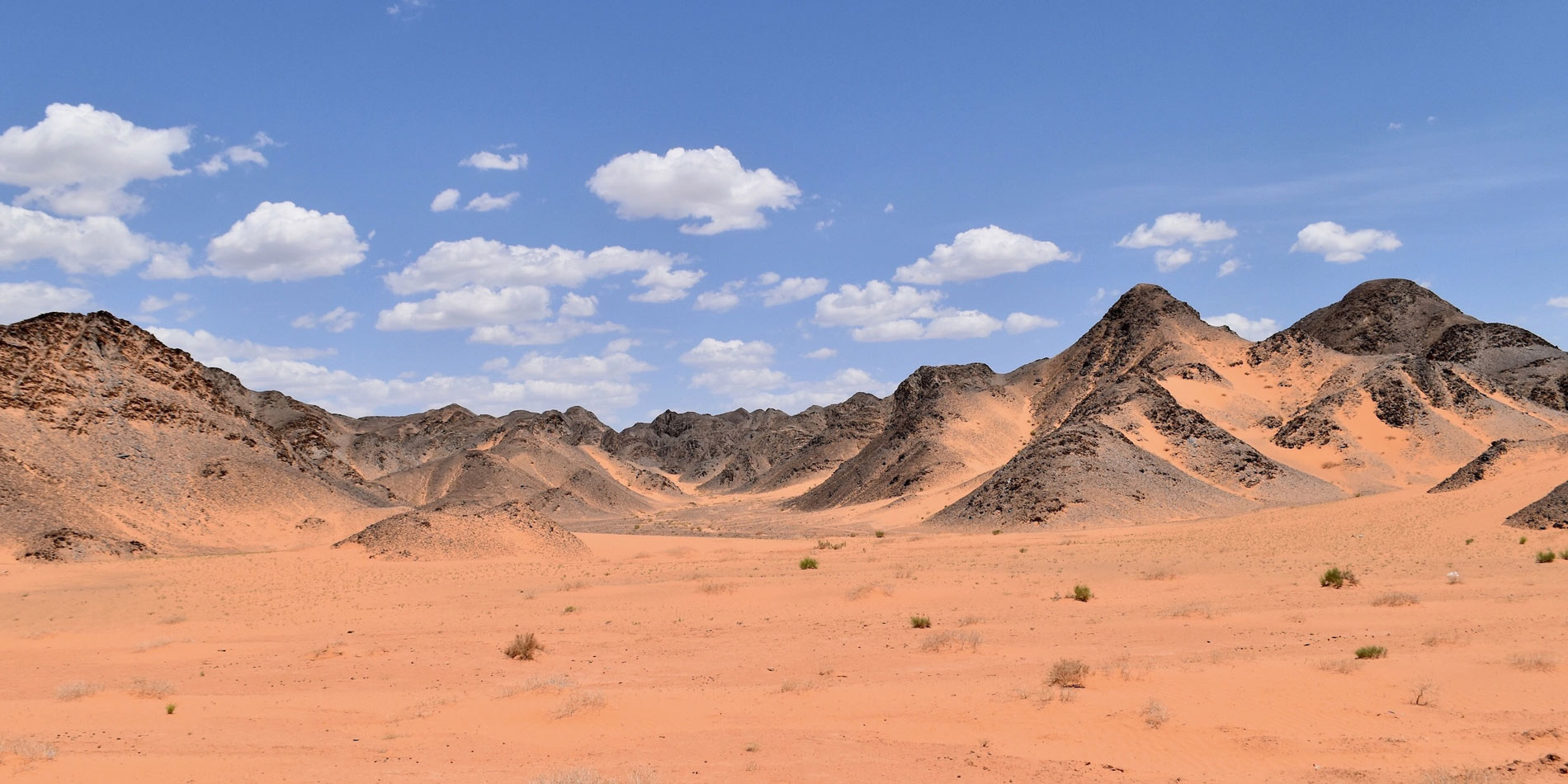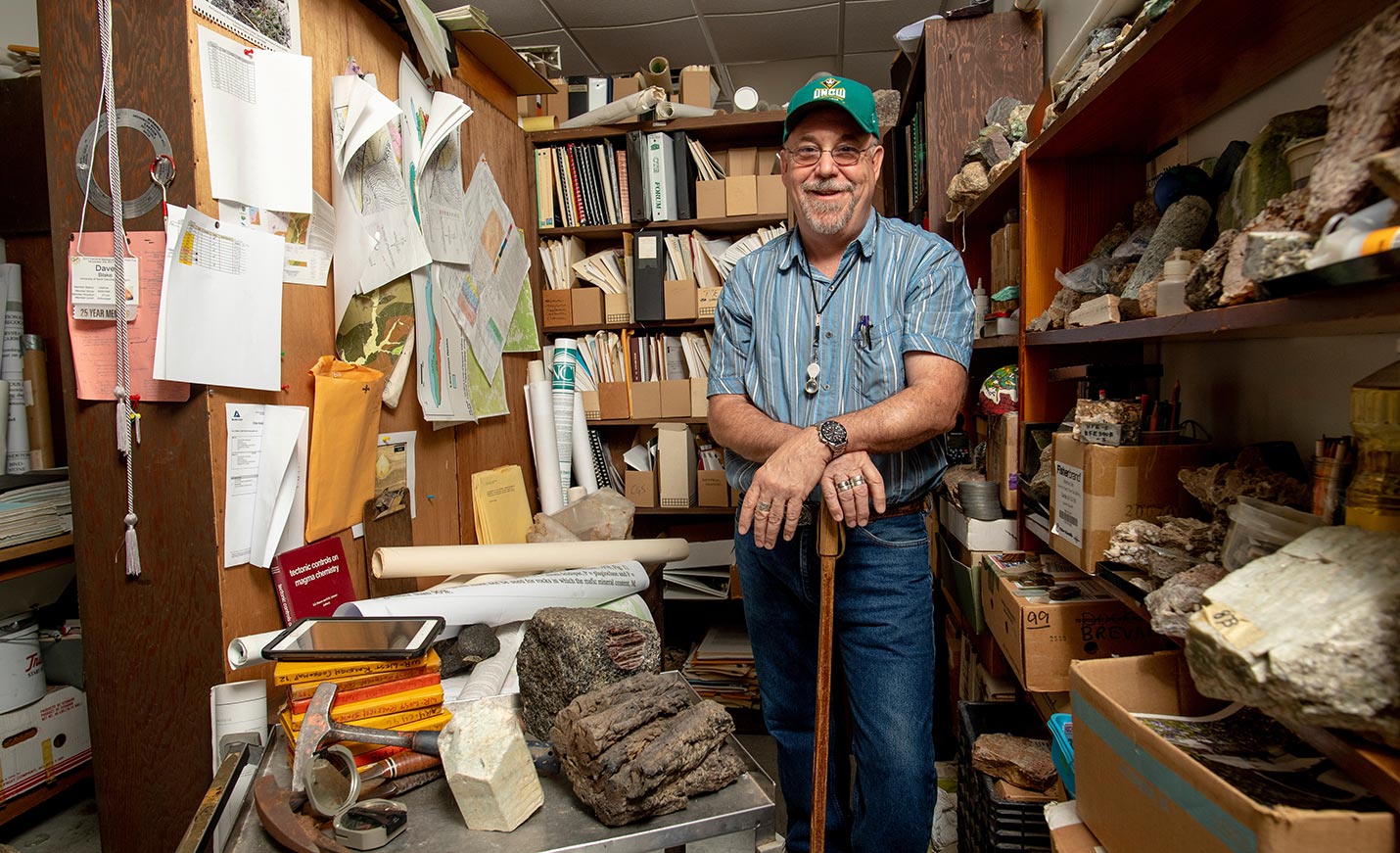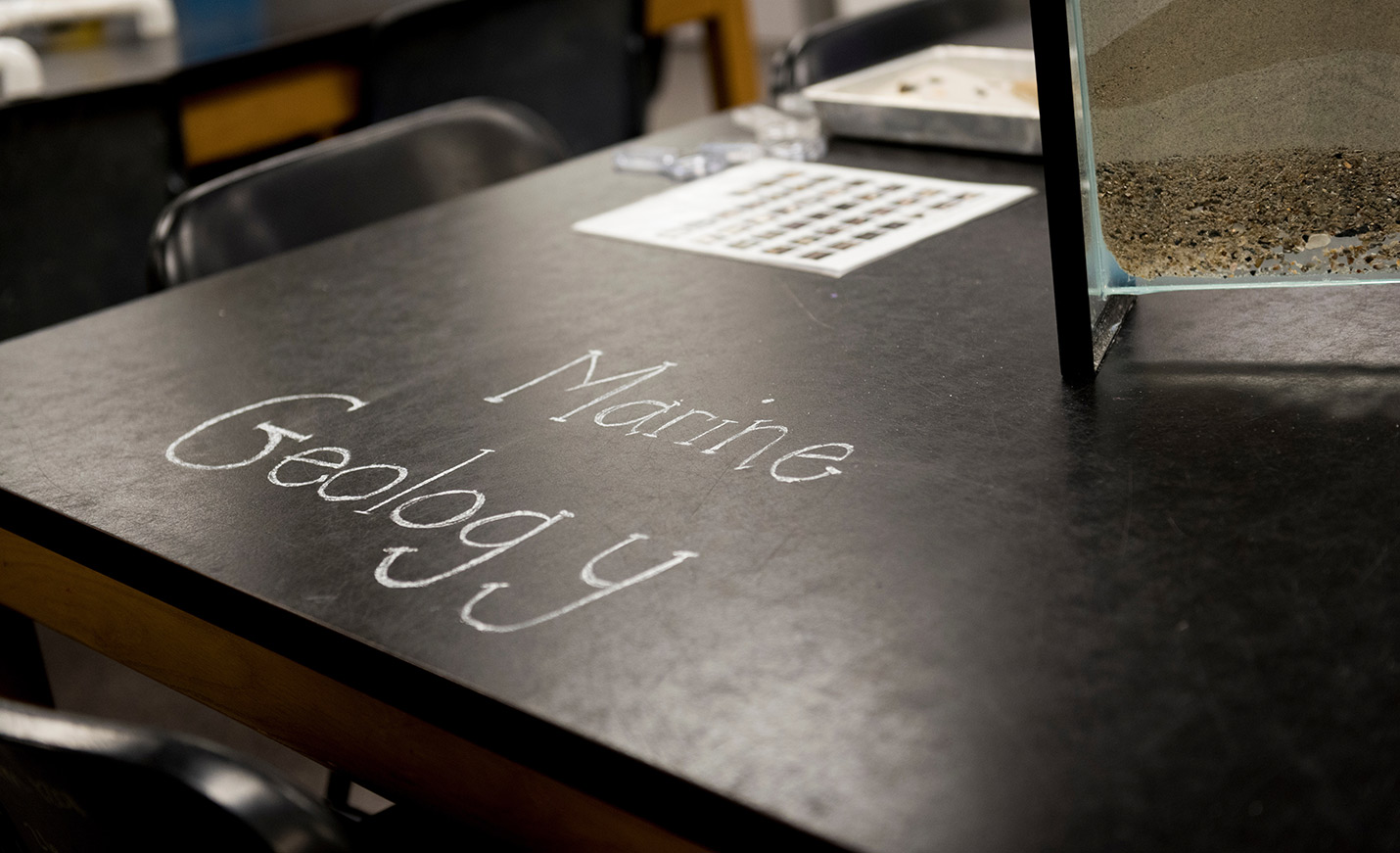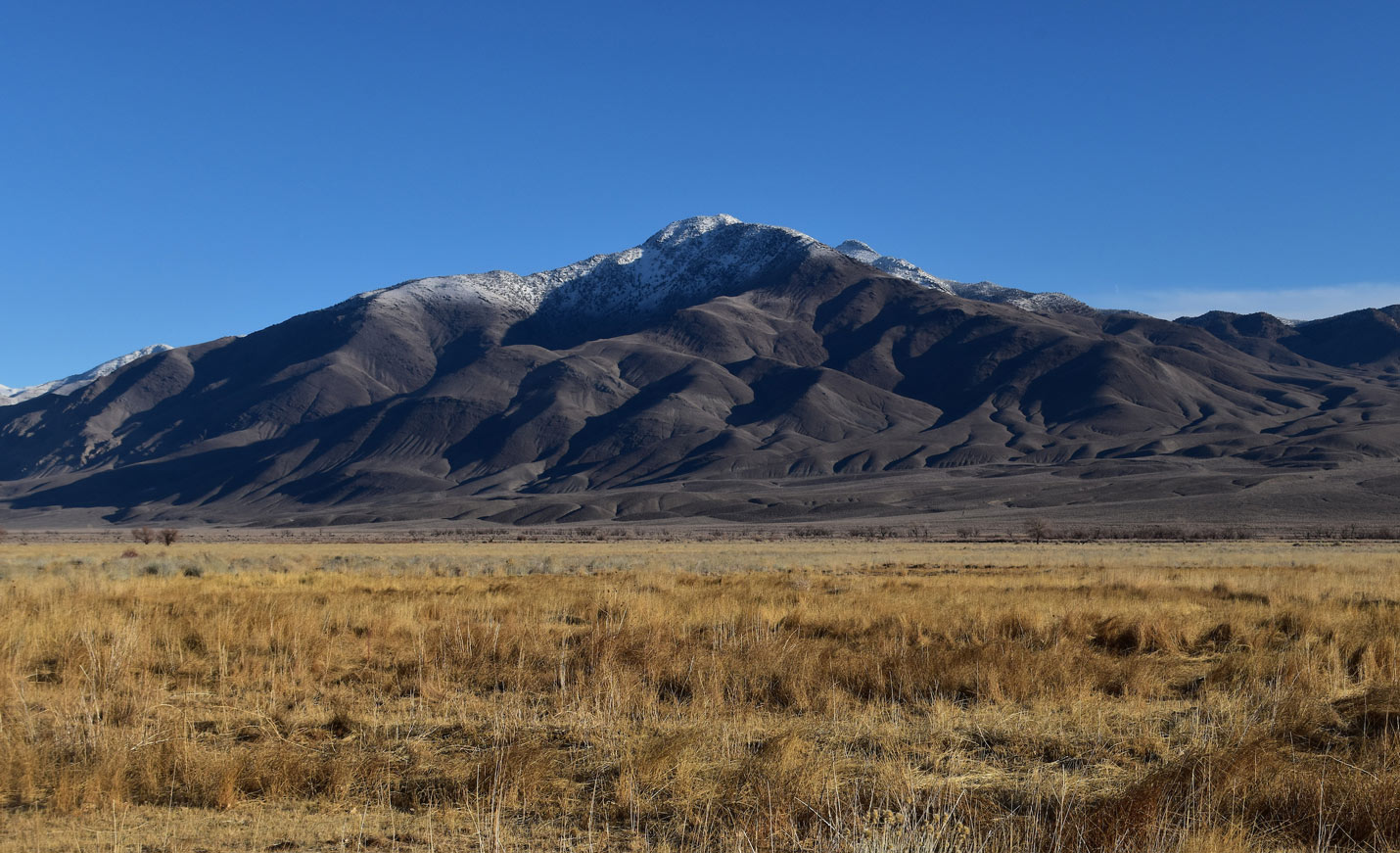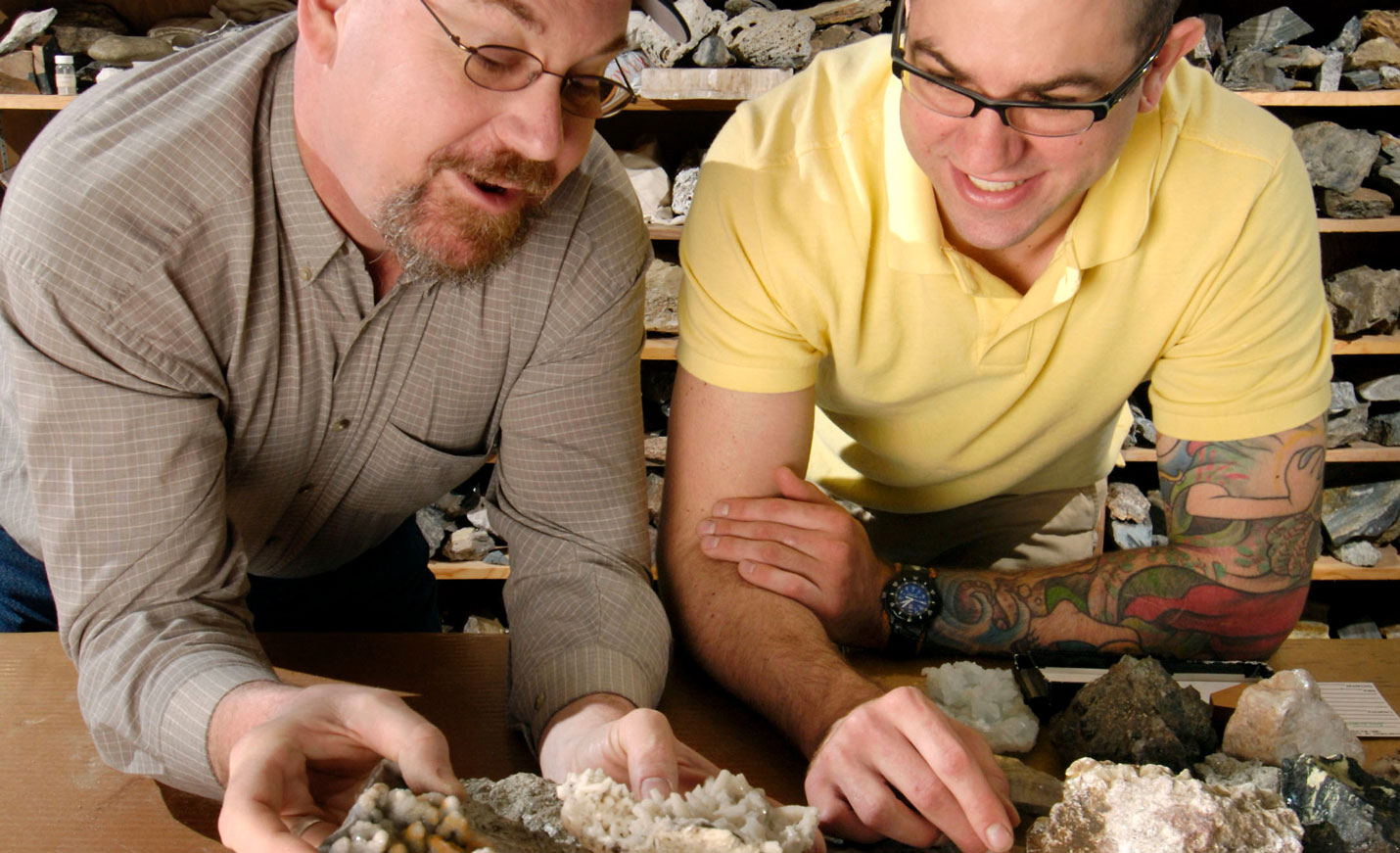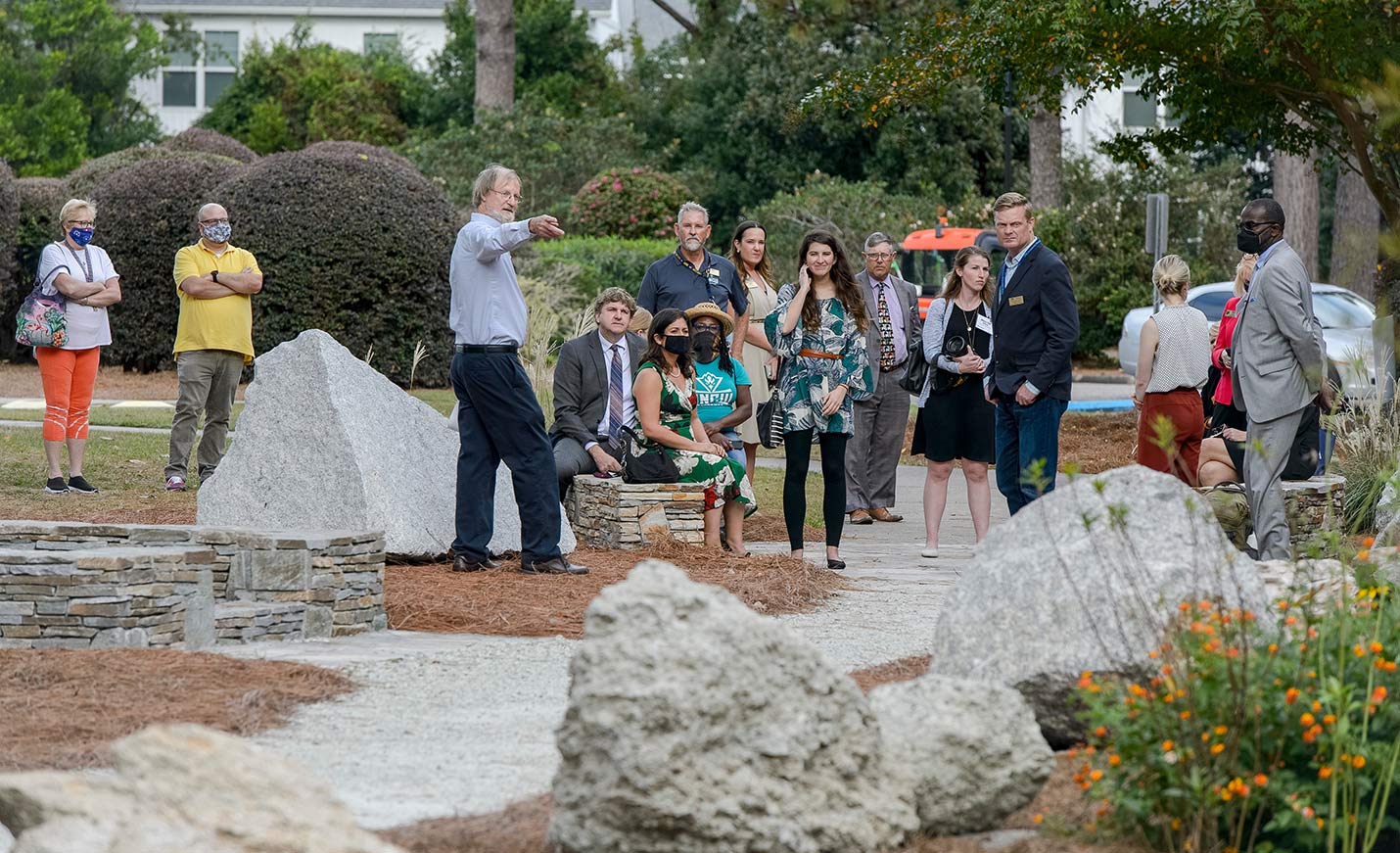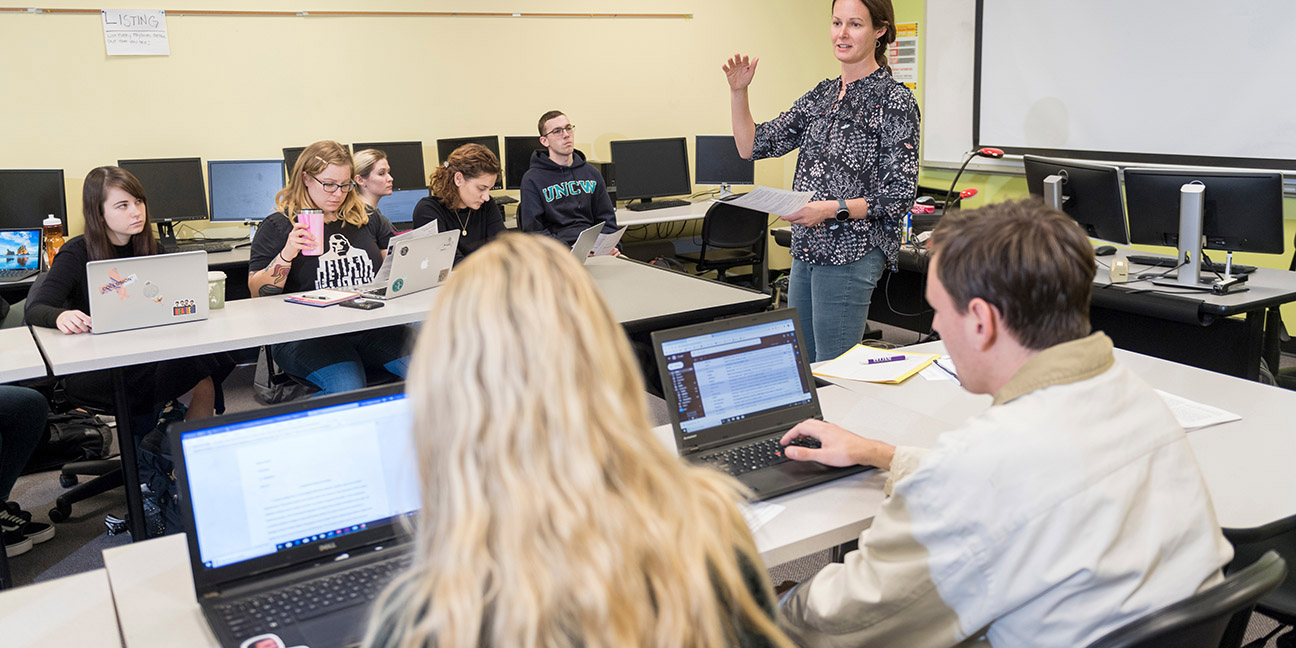Oceanography
Designed specifically for students interested in pursuing professional, research or academic careers and/or advanced degrees in the ocean sciences.
Learn More - Oceanography Minor
Learn More - Oceanography, B.S.
Geography and Geospatial Sciences, B.A.
Broad, flexible program that meets personal educational goals and interests, including careers and graduate study in physical or human geography, planning or applied geography.
Geology, B.S.
The degree in geology focuses on scientific study of Earth; common rocks and minerals, processes that form and alter basic Earth materials, and key events in the geologic evolution of the planet.

